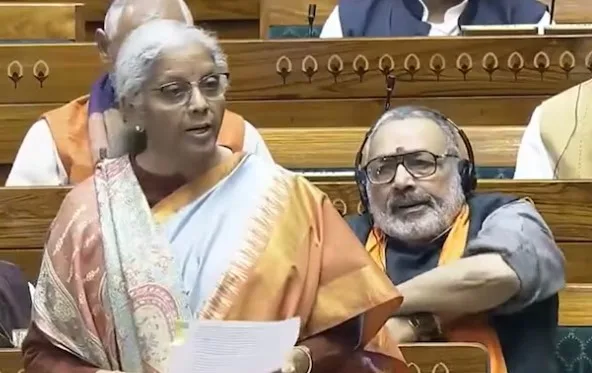In a major development, the Lok Sabha has passed the Banking Laws (Amendment) Bill, which will allow bank account holders to appoint up to four nominees.

New Delhi, December 3, 2024: The Lok Sabha has passed the Banking Laws (Amendment) Bill, which brings important changes to the banking system in India. One of the key changes is that the bill allows people to nominate up to four individuals in their bank accounts. This new provision is expected to make it easier for account holders to choose more than one nominee for their bank deposits.
The Bill was passed in the Lok Sabha on Monday with overwhelming support from Members of Parliament (MPs). The legislation aims to simplify the rules related to banking and improve customer convenience. The new rules will apply to all types of bank accounts, including savings accounts, fixed deposits, and current accounts.
Key Features of the Amendment
One of the most significant changes in the Banking Laws (Amendment) Bill is the increase in the number of nominees allowed in a bank account. Under the previous system, a bank account holder could only name one nominee. However, with the new amendment, the number of nominees has been increased to four. This will allow customers to designate multiple individuals who would inherit the money in the account in case of the account holder’s death.
The amendment is aimed at addressing the common problem of families and heirs having to go through lengthy legal processes to claim the money in the event of the account holder’s death. By allowing multiple nominees, the banking process becomes simpler and less time-consuming. It also ensures that the wealth in the account is distributed among several people, reducing the chances of disputes.
Benefits of the Amendment
The amendment is seen as a big relief for families. Often, when only one nominee was named, there were disputes among relatives about the rightful claimant. The new law allows the account holder to decide in advance how their money should be divided, making the process smoother for family members. It will also help in cases where there are multiple dependents.
Additionally, this new rule will help elderly people, or those with complex family structures, who want to divide their wealth between children, spouses, or other family members. With four nominees, the account holder has more flexibility and control over their assets.
Moreover, the Banking Laws (Amendment) Bill also strengthens the legal framework to protect the rights of bank account holders. It introduces more transparency in the nomination process and ensures that the process of transferring funds to the nominees is faster and easier.
Other Provisions of the Bill
Besides the changes related to nominations, the bill also includes provisions for improving the overall functioning of banks. It gives more power to the Reserve Bank of India (RBI) to regulate banks and enforce compliance with banking laws. The bill also gives banks more freedom to take quick actions when there are signs of financial mismanagement or fraud.
The amendment also brings in new measures for electronic transactions. These include provisions to ensure that digital banking services are secure and that customers’ data is protected from fraud or misuse.
Reactions from Lawmakers
The bill has received support from many MPs, who see it as a step forward in modernizing India’s banking system. Some lawmakers, however, have called for even more reforms to improve access to banking services in rural and underserved areas.
Finance Minister Nirmala Sitharaman, while speaking in the Lok Sabha, said that the bill would benefit a large section of society, especially the elderly and people with complex family arrangements. “This is a significant reform that will simplify the way banking services are provided to the public. It will also help in reducing disputes and legal complications among families,” she said.




